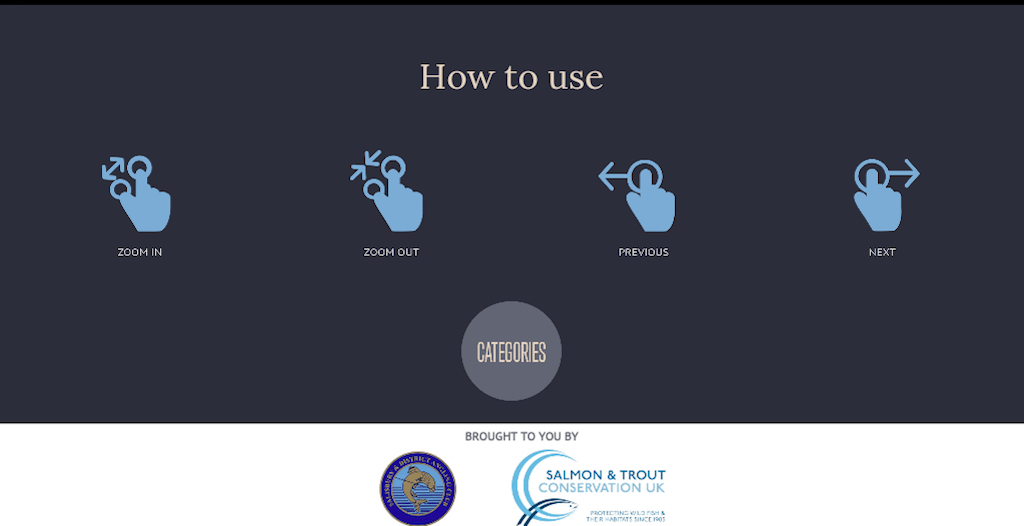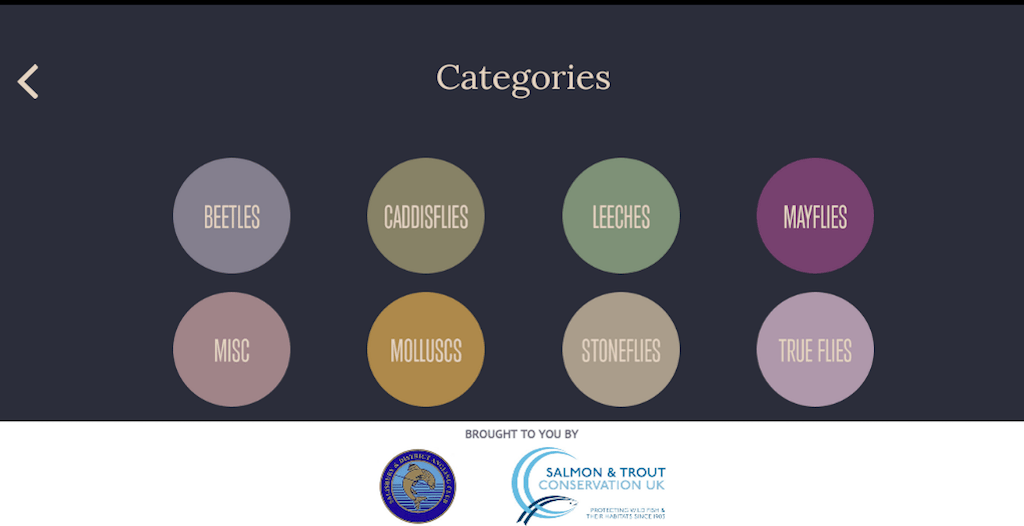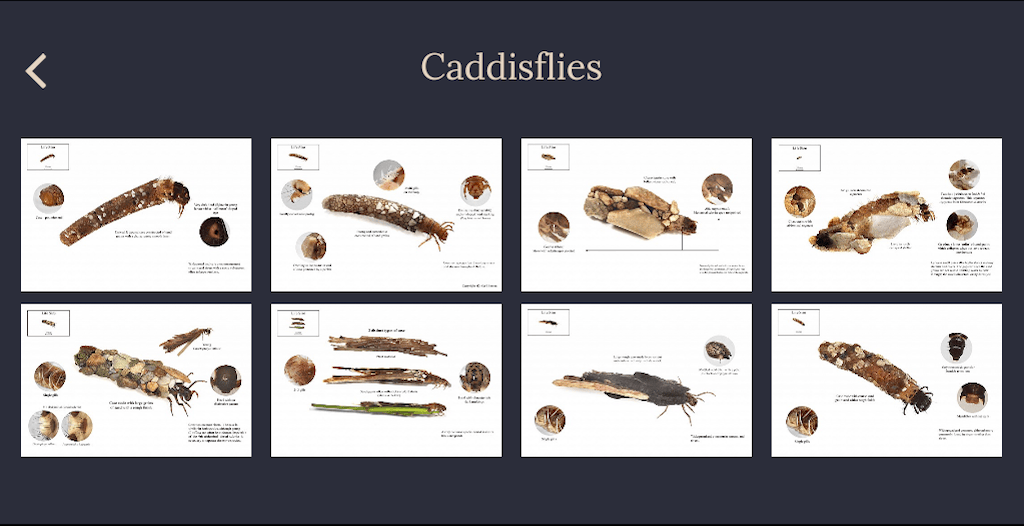The bright verdant colours of spring and early summer along the chalkstreams have rapidly faded to be replaced but the duller fawns of late summer and it is now the turn of the fringe flowers to inject a visual delight. All the chalkstreams are running crystal clear holding reasonable levels and the trout have become extremely wary of anything other than a perfectly presented fly, whether a dry or nymph. High water temperature and lower oxygen levels make the trout less active during the day so early morning and late evening sessions have continued to produce with very little surface activity during the mid-day period.
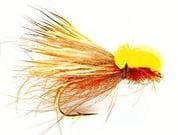 Dry flies that have been working for clients over the last week on the chalkstreams include balloon caddis, sherry spinner and black gnats, and a subsurface favourite has been a bead head red neck pheasant tail nymph.
Dry flies that have been working for clients over the last week on the chalkstreams include balloon caddis, sherry spinner and black gnats, and a subsurface favourite has been a bead head red neck pheasant tail nymph.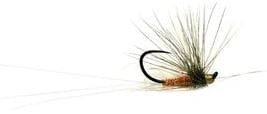
We can also expect to see increasing numbers of crane flies being blown onto the water and at this time of year a flying ant imitation is also worth carrying as a fall of these insects can bring on a most spectacular rise.
The National Angling Month continues and we can still offer that a child under 16 goes free if accompanied by a paying adult on the chalkstreams, including rivers; Test, Anton and Avon, a great opportunity to relieve the boredom of the long school summer holiday and inspire a youngster to continue with the sport. For the remainder of August a 10% discount on normal pricing also applies across all our beats. There is a scheduled weedcut on the river Test between the 16th and 23rd of the month but most keepers will be cutting very little weed helping maintain water levels for the remainder of the season.
If you would like more information on any of our chalkstream fishing and the summer availability please contact Alex Jardine or call our office on +44(0)1980 847389.
If you are interested in all that goes on below the surface of our streams I can highly recommend the new River Invertebrate Larvae app.
River Invertebrate Larvae
The innovative new mobile App developed by Salmon & Trout Conservation UK (S&TC UK) in conjunction with Salisbury & District Angling Club, which was launched last month has already been upgraded to make it one of the most effective weapons to help tackle river pollution.
Version two of the mobile App is free to anyone who has already downloaded the earlier version. This powerful new upgrade means that it is now possible to use the App even without internet access such as on the river bank.
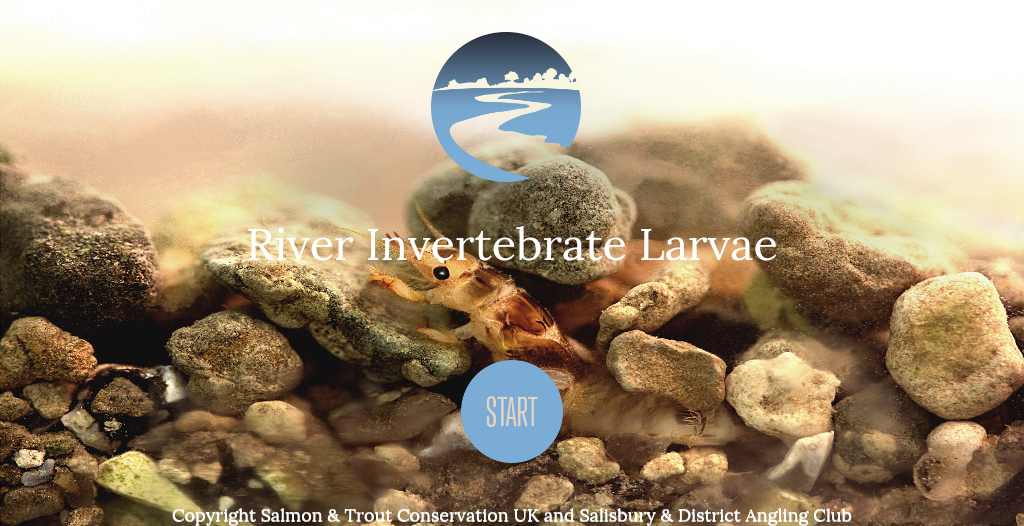
The App provides an interactive visual guide to help identify river invertebrate larvae. Best viewed on a tablet, the App shows easily identifiable features for each species, plus its pollution fingerprint and conservation value. It also identifies the sensitivity of individual species to particular stresses such as siltation, phosphates, organic pollutions and flow. Their presence or absence is a clear indication of water quality.”
Nick Measham, author of the S&TC UK’s 2015 Riverfly Census said, “The Census has made anglers sit up and think about riverflies, the life blood of our rivers. The App allows them to act. The Census covered 12 rivers and we aim to grow it over 2016 and 2017 to 24 rivers. But this is a fraction of what needs to be done. Working with us, App users will be able to profile many, many more rivers. The App will allow all who care about our rivers to analyse riverflies to species level to give real insight into what is going on.”
The App is available to purchase by all those with an interest in the status of our rivers, particularly those keen to undertake more detailed studies relating to river invertebrates and the specific threats they face through human pressures. However, to ensure robustness of data and to comply with the overall ethos of the Riverfly Census, training of monitors and initial benchmarking of the river is essential.
Dr Cyril Bennett MBE, who has provided the high quality digital images used in the App, said, “If we are to look after our rivers then we need to do it ourselves and to do that we have to know our bit of river better than anyone else. Being able to identify and record the invertebrate species expected at our site enables us to keep a closer watch on water quality.”
It is a powerful tool which can be used to drive evidence based conversations, versus opinions,it as an absolute must for clubs, syndicates, riparian owners and all those who care about their waters.”
The cost of the App is £29.99 and is available for both Android and Apple devices and can be downloaded from the special website www.riverinvertebratelarvae.co.uk.
Existing users of version one can upgrade to version two (and subsequent updates) free of charge but this needs to be done with Wifi / internet access. Simply close down the App and the latest version will be loaded automatically. Once upgraded the App can be viewed with or without internet access.

